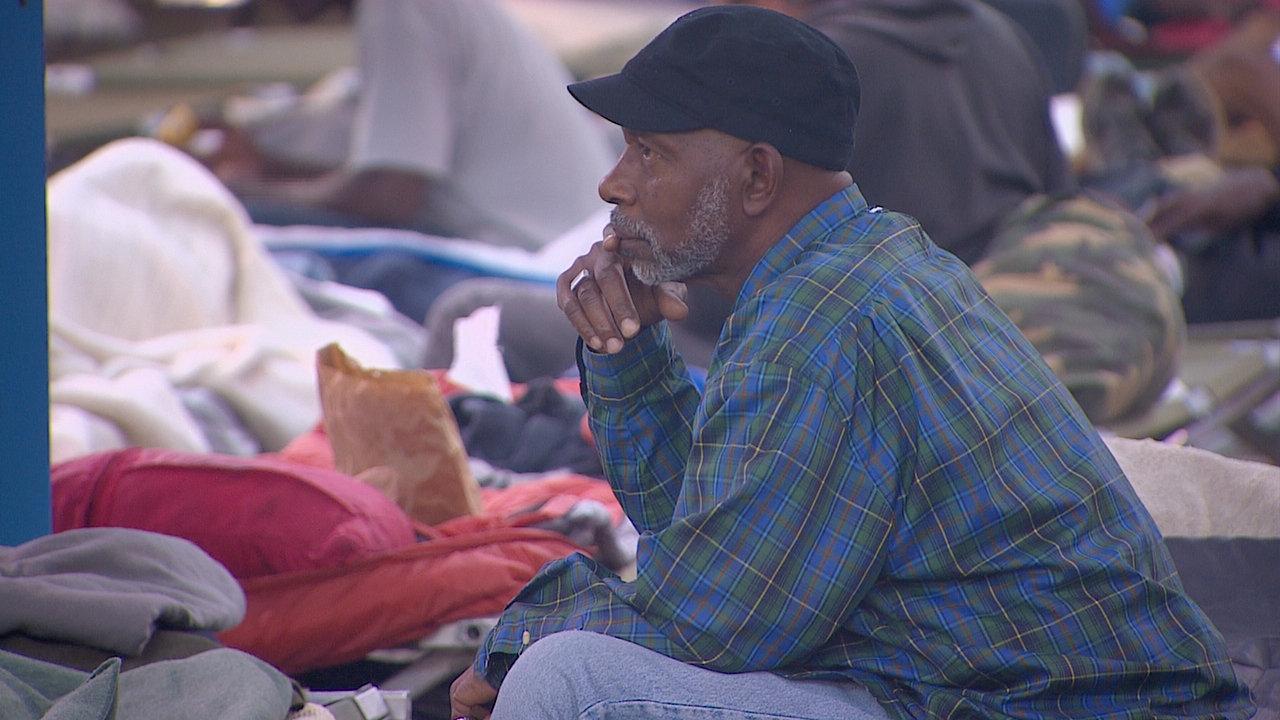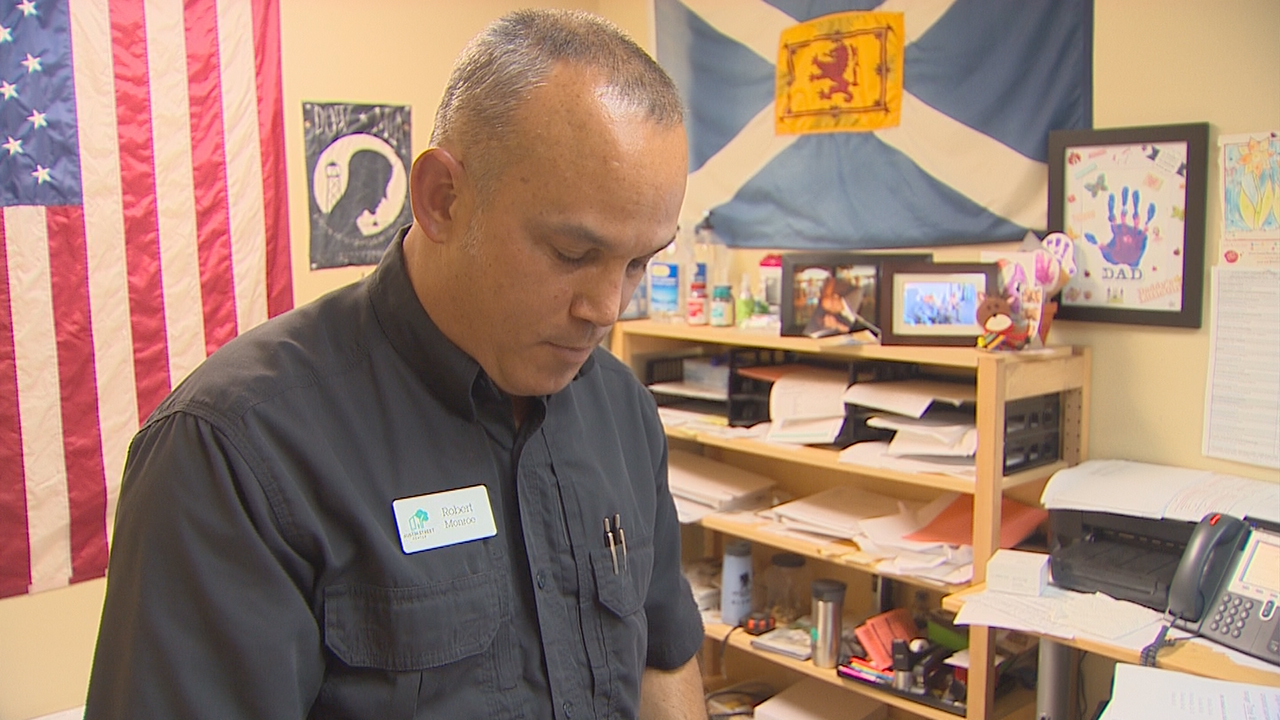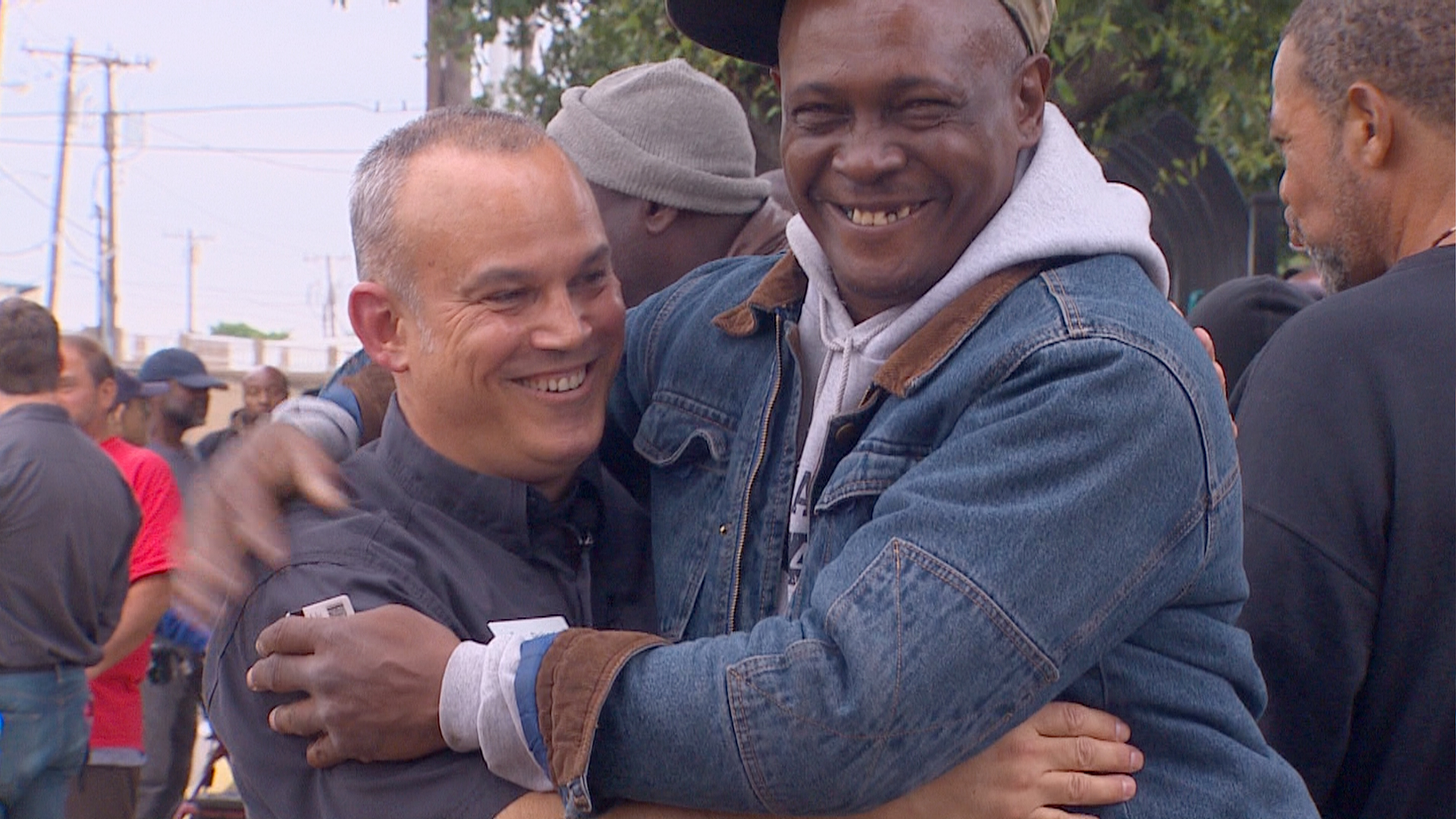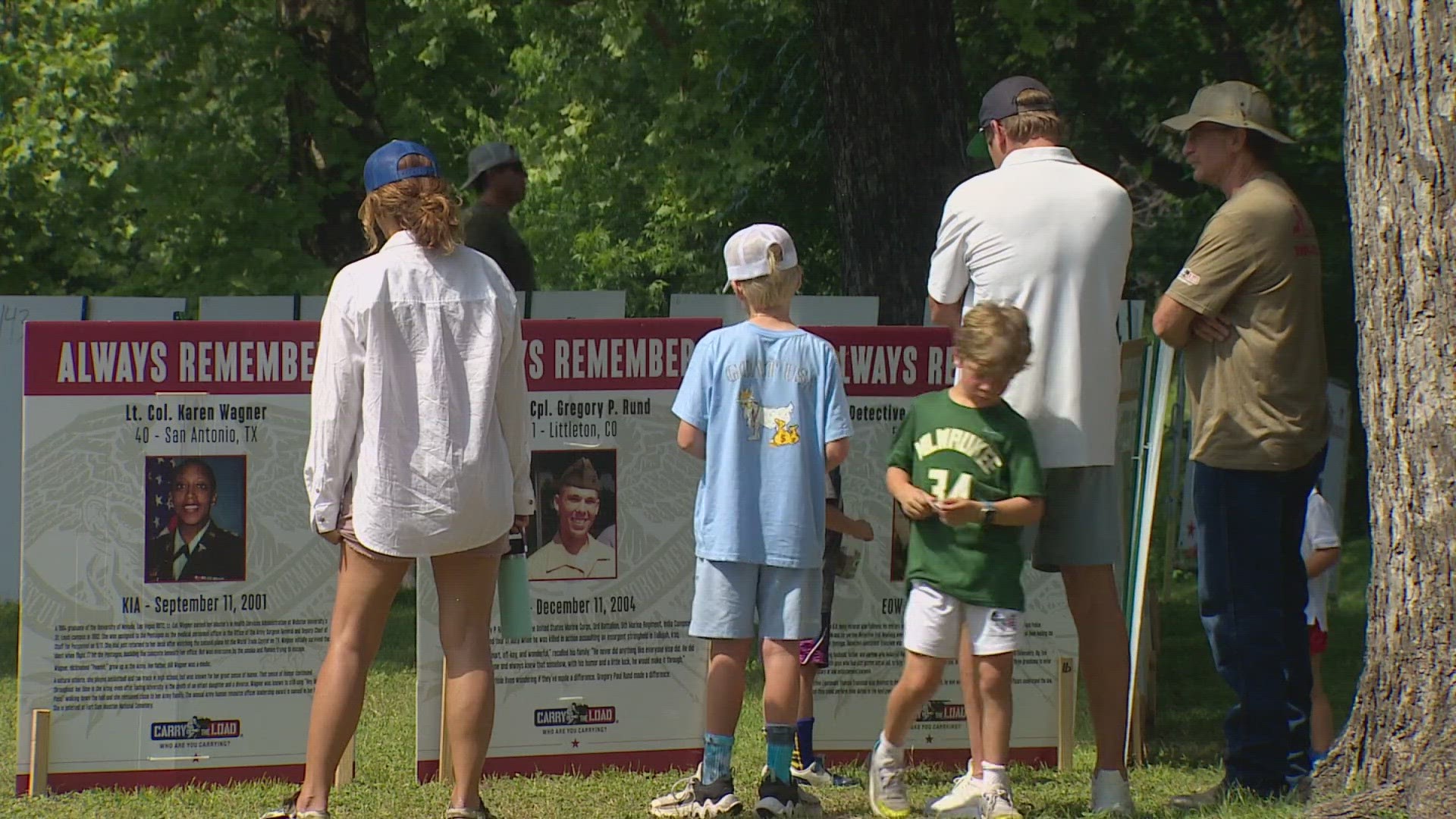DALLAS — The U.S. Department of Housing and Urban Development estimated in 2015 that nearly 48,000 American military veterans were homeless.
Just for perspective, that number is greater than the number of U.S. service personnel killed in battle in the two Iraq wars, the war in Afghanistan, and the Korean War combined.
Carry The Load is an organization dedicated to bringing back the "true meaning" of Memorial Day to make sure Americans remember those who fought and died in service to this country. The organization has also raised millions of dollars for various causes, including the Austin Street Center in Dallas, which provides shelter for the homeless.

Name, rank, and serial number? None of that matters to the streets, which are home to so many vets, like Dexter Henderson.
“I am what is considered chronically homeless because I go up and down in my homelessness," he said.
Henderson says he has been on and off the streets for the last five years. He isn’t happy about his predicament, but says he's glad he had the training that helps him soldier on through the hard times.
“The Army and military showed us how to survive in all situations," he said.
We met him at the Austin Street Center, where he found a bed for a night.
There was also a cot and a case worker for Rodney Lee Thurmond, who says his transition from the Air Force to civilian life has been rough.
“We are very proud people and it is very hard for us to ask for help," Thurmond said.
Thurmond has had to ask often, though. He has slipped in and out of homelessness for two decades.
"It seems like I go through a period of time and do really good and then the effects haunt me," he said. "The PTSD is tremendous at times and then I become homeless.”
Administrators at the Austin Street Center in Dallas report that on any given night about 10 percent of the available cots at the shelter are occupied by people who have served this country. In many cases, a series of unfortunate circumstances land a vet there.
But there’s one vet who shows up at the shelter every day purely by his own choice. Robert Monroe is a former Marine and Army man. He served in both Iraq wars and then came home to some big questions.
“What’s my purpose? What am I doing? Yeah, I had that void and I am filling that void here,” he said.
He started working at the Austin Street Center as the security director.
As he has gone about his duties of keeping the shelter safe, Monroe has bonded with many who seek help there. He says the secret is that he shows them respect, just like he was taught to do in the military.

Many of those who regularly rely on the shelter have become much like the people in Monroe’s old unit.
“I was still helping the guy to my left and my right and it’s the same thing," he said. "We’re all just people in this world helping each other.”
Monroe needed this vocation. He explains that in his years in uniform he saw really bad things happen to a lot of people.
“Coming here is my way of helping the ones I couldn’t help or missed helping," Monroe said.
In this place of starting over, Monroe is getting his own second chance to serve and do some good to make up for all the bad he’s seen.
“We all have something to carry," he said. "That is one of my burdens to carry. It’ll never go away. “


